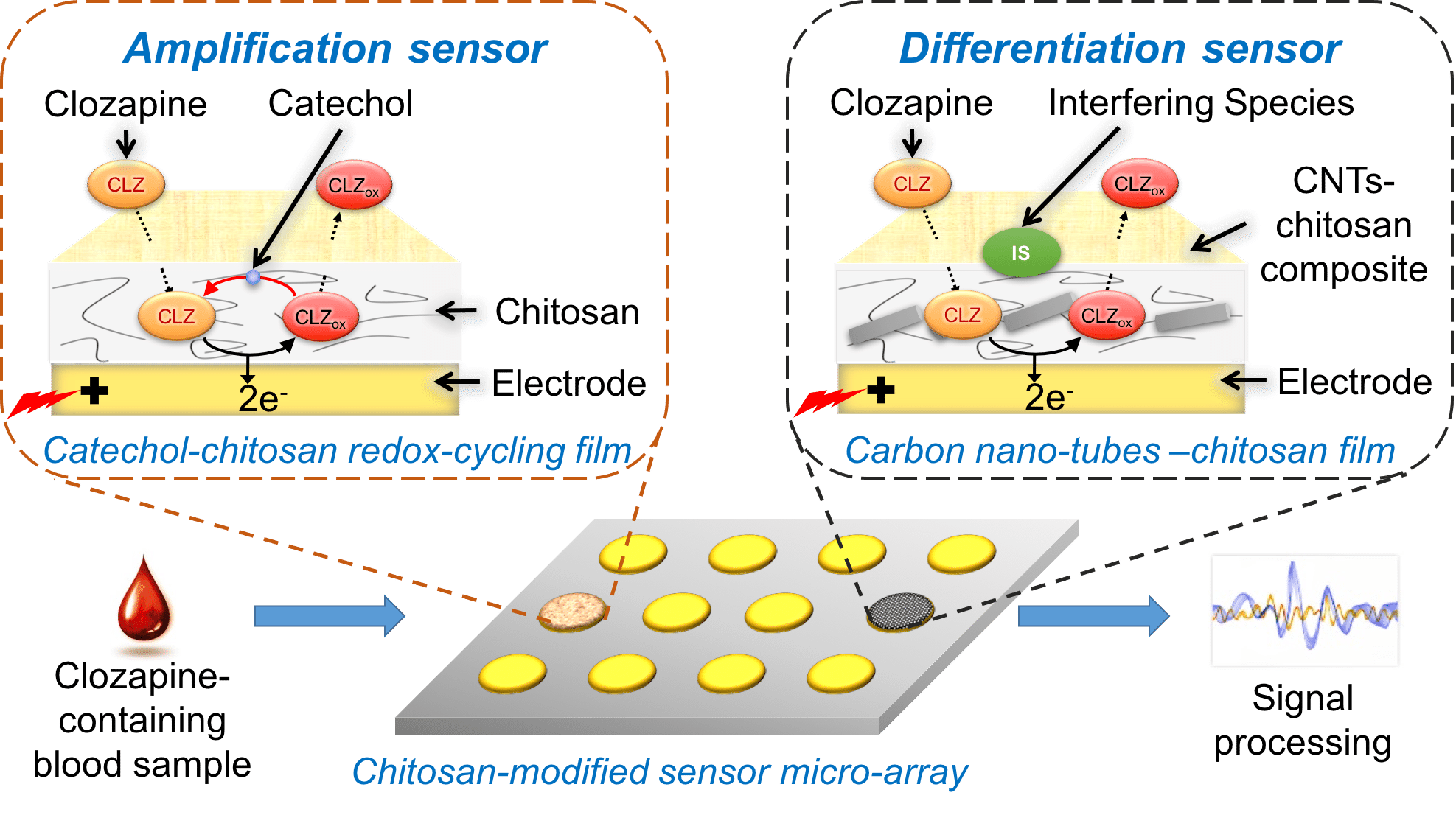
Bioelectronic Films as Functional Materials for Smart Electrochemical Biosensors
Electrochemical lab-on-a-chip biosensing devices are translational and mobile analytical micro-systems that enable rapid and label-free analyses of redox-active biomarkers, bringing benchtop medical diagnostics methods to the point-of-care. However, the selectivity of electrochemical biosensors towards the biomarkers-of-interest dramatically decreases in the presence of biological fluids due to other redox-active molecules generating masking electrochemical signals. Engineering new electronic surfaces for the sensors that will amplify the electrochemical signals generated by the biomarkers, and can be easily integrated with conventional micro- and nano-fabrication techniques, will improve the sensitivity and the limit-of-detection in the presence of biological fluids. In this research, we will discuss the use of a stimuli-responsive biopolymer chitosan for a controlled biofabrication scheme with a high spatiotemporal resolution that enables functional bioelectronic surfaces in microfabricated lab-on-a-chip devices. For example, we will demonstrate the utilization of nanometers-size films of chitosan modified with redox-active catechol moieties resulting in a redox-cycling system for electrochemical signal amplification. The redox-cycling system is used to amplify the electrochemical signal of a redox-active antipsychotic medication clozapine (CLZ), which is used for schizophrenia treatment, through a continuous cycle of CLZ oxidation followed by catechol reduction of CLZ. We will also present the use of chitosan to encapsulate carbon nanotubes and the ability of the resulted electrocatalytic bio-composite to differentiate the electrochemical signal generated by the neurotransmitter dopamine from the masking signal of uric acid. Biofabrication of nanometers-size films with unique electronic characteristics for seamless integration in electrochemical biosensors will enable rapid and low sample volume analyses of biomarkers in biological fluids that will hopefully improve personalized health monitoring.

Figure 1. Smart electrochemical biosensor for redox-active biomarkers analyses in biological fluids.
Powered by Eventact EMS